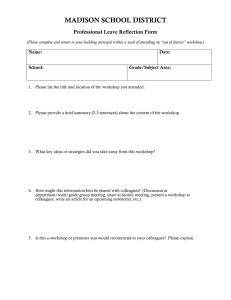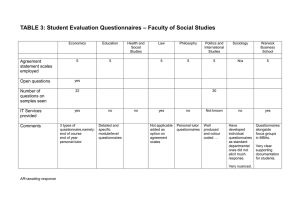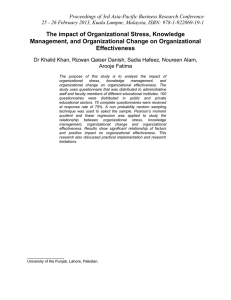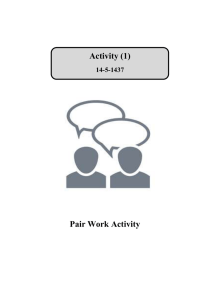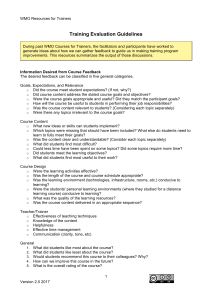SOLICITING FEEDBACK FROM OTHERS
advertisement
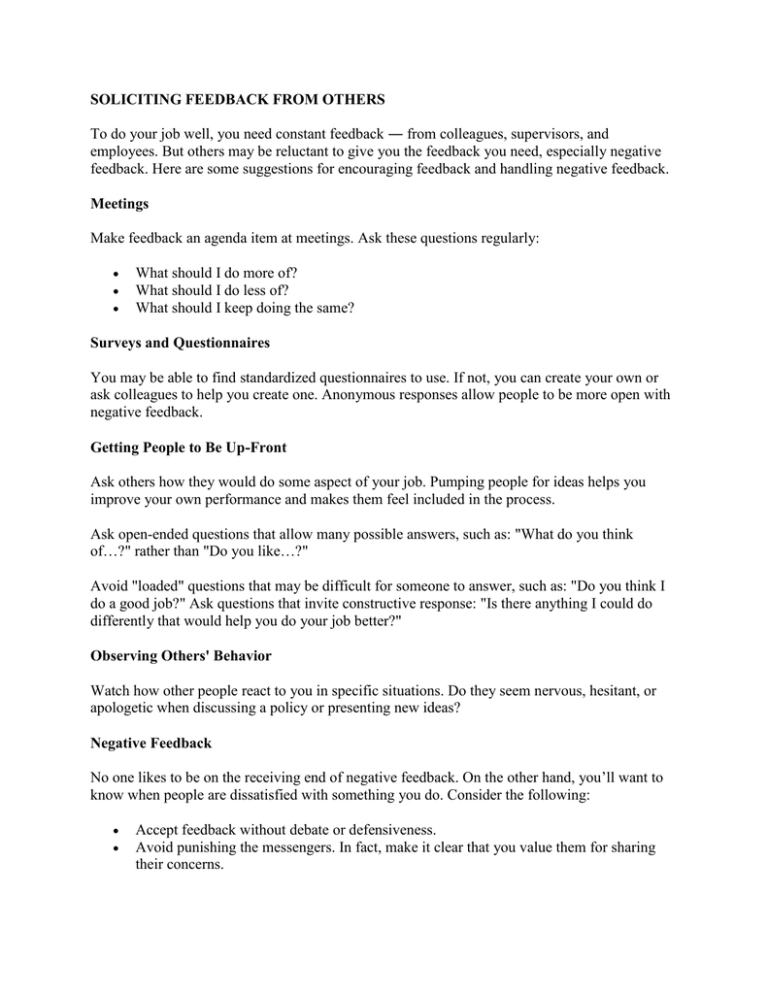
SOLICITING FEEDBACK FROM OTHERS To do your job well, you need constant feedback ― from colleagues, supervisors, and employees. But others may be reluctant to give you the feedback you need, especially negative feedback. Here are some suggestions for encouraging feedback and handling negative feedback. Meetings Make feedback an agenda item at meetings. Ask these questions regularly: What should I do more of? What should I do less of? What should I keep doing the same? Surveys and Questionnaires You may be able to find standardized questionnaires to use. If not, you can create your own or ask colleagues to help you create one. Anonymous responses allow people to be more open with negative feedback. Getting People to Be Up-Front Ask others how they would do some aspect of your job. Pumping people for ideas helps you improve your own performance and makes them feel included in the process. Ask open-ended questions that allow many possible answers, such as: "What do you think of…?" rather than "Do you like…?" Avoid "loaded" questions that may be difficult for someone to answer, such as: "Do you think I do a good job?" Ask questions that invite constructive response: "Is there anything I could do differently that would help you do your job better?" Observing Others' Behavior Watch how other people react to you in specific situations. Do they seem nervous, hesitant, or apologetic when discussing a policy or presenting new ideas? Negative Feedback No one likes to be on the receiving end of negative feedback. On the other hand, you’ll want to know when people are dissatisfied with something you do. Consider the following: Accept feedback without debate or defensiveness. Avoid punishing the messengers. In fact, make it clear that you value them for sharing their concerns. Ask for specifics. Get enough information to make sure you understand exactly what the problem is. Verify the information with others. Not all negative feedback is valid. Decide what to do and develop a plan of action. Analyzing Problems and Successes Yourself Ask yourself: What is working well? What isn’t working? What improvements or changes worked in the past? (Reference: Copyright by Parlay International. Distributed under licensing agreement to BYUIdaho employees.)

